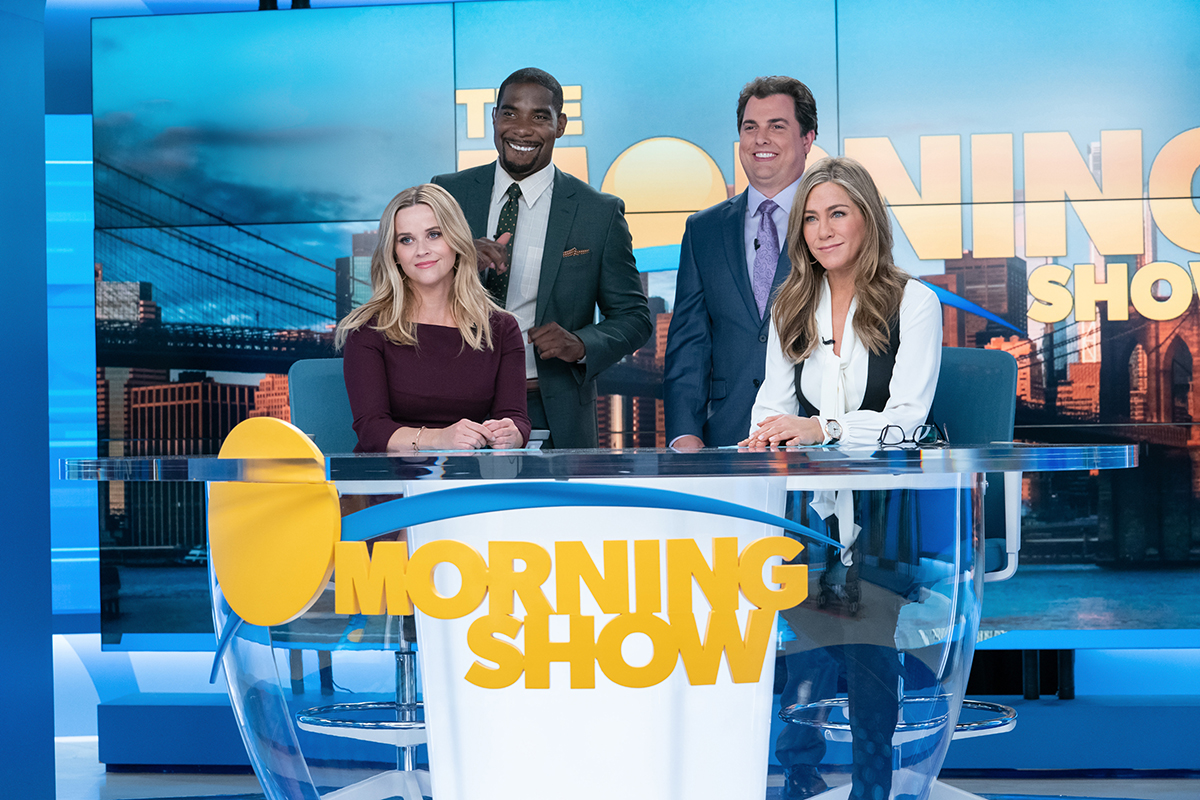The Morning Show, the Apple TV+ series that tips its hat to an early morning format, is a soap opera that should have been a telenovela. It has all the ingredients. Cutthroat politics, ludicrous plot twists, trending social issues, campy newsroom drama, and perfect hair.
It centers around the fictional UBA network where C-Suite Faustian bargains, Machiavellian bosses, and inconvenient suicides are all in a day’s work.
There is a dark side, too.
Now in its third season, the show has done well. Executive-produced by Jennifer Aniston, it has won multiple awards and is on track for a fourth and possibly fifth season.
Watching the show, a nod to Brian Stelter’s Top of the Morning book (about NBC’s The Today Show), brought back memories of my time as a news executive at a leading network, though which one shall remain nameless.
The Morning Show is a good representation of what takes place behind the cameras, portraying what the media has become (especially huge money makers like morning shows) – infotainment rather than news, titillation instead of information.
From the first episode, I was hooked. It felt like coming home.

I watched as a self-centered Alex Levy (a perfectly coiffed and poised Jennifer Aniston) dealt with the fallout after her popular morning show co-anchor of 15 years, Mitch Kessler (played smarmingly by Steve Carrell), gets outed as a repeat sexual predator.
The higher-ups are trying to push her out, and she responds by sabotaging their plans and installing Bradley Jackson (Reese Witherspoon), the young upstart who believes in truth in journalism, as her co-host.
In one of the best scenes of the first two seasons, Alex faces off the board of men trying to get rid of her in a Joan Crawford not-her-first-time-at-the-rodeo moment. It’s so good. No wonder she won the Emmy for best actress in a drama in 2020.
The #MeToo playlet leads to on-air soul-baring about UBA’s toxic work environment, triggers the suicide of the show’s head booker, sexually assaulted by Kessler years earlier, and drives Mitch into self-exile in Italy.
Producers kill Mitch off by driving his car off a cliff and Alex gets Covid. She broadcasts her suffering to the world and reinvents herself. The cherry on top is a same-sex love story between Bradley and a rival network morning anchor. We are off to the races.
Now in the third season, the plot twist has Bradley off in space in a phallic-looking rocket belonging to Hyperion tech billionaire Paul Marks (played by a permanently unshaven Jon Hamm), who is set to buy UBA and save it from itself.
Throw in the end of Roe vs. Wade, MAGA Capital rioters, Bradley mutilating an edit to save her brother (who attacked a police officer at the riots), a cyberattack that outs everyone’s business, and a love story between Marks and Levy and what do you have?
A messy, ridiculous, can’t-stop-watching telenovela – Usurpadora style.

In the middle of all of this, pulling the levers in the dark is my favorite character – UBA CEO Cory Ellison played superbly by Billy Crudup. He won an Emmy, critical praise, and is the best thing on the show.
As charming as a rattlesnake, Cory is a perfect telenovela baddy. His ruthless pursuit of ratings – nothing is off limits, not even his mother – landed him at the top office at UBA’s news division. He will do anything to stay there.
“He is oddly compelling in a Patrick Bateman in a vinyl raincoat kind of way,” Audra Khatri (Mindy Kaling), one of the anchors of a rival morning show, says of Ellis. The description couldn’t be more perfect.
His curled, reptilian lip as he delivers his (better than those on Succession) one-liners is when the camp becomes cutthroat and weirdly familiar.
“People get their horrible news delivered to the palm of their hand 24/7,” Cory says in season one. “And they get it the way they like it, colored the way they want it. And news is awful, but humanity is addicted to it, and the whole world gets depressed by it. That’s why what we really need on television right now is not news or fucking journalism; it’s entertainment.”
He is the creep and why I watch the show. I have worked with people like Cory. They are out there today, in the middle of a horrific war, deciding what we see and telling us what to believe in.
Because, as Cory says, this is about something other than a little television network. This is “a battle for the soul of the universe.”
The dark side is real. I will continue watching.


